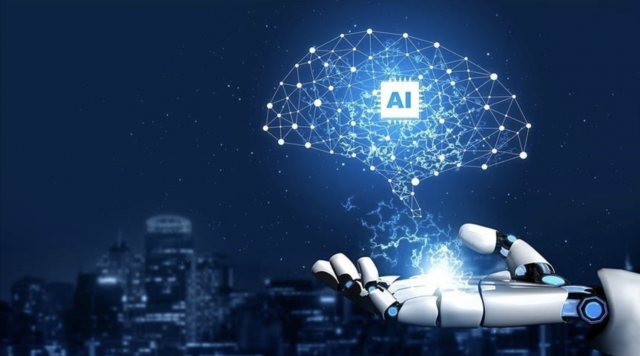Navigating AI's effects on creativity and employment
Polls indicate rising public anxiety about AI's implications for employment, wages, and societal changes.

As applications of artificial intelligence (AI) continue to widen, there appears to be no end in sight to the technology’s progress.
While advances in AI in areas like content creation have inspired hope in many, an Ipsos poll as early as last year suggests that slightly more people — 52% — are nervous about the possible undesired effects of AI products and services.
This marks a 13-percentage-point rise from 2022, with people across the globe becoming "increasingly cognizant of and nervous about AI’s growing impact."
Implications ranging from employment and personal privacy to society-wide or ethical concerns are major fears of people wary of AI eventually surpassing human creativity.
While 57% of respondents expected AI to change how they perform their current job within the next five years, 36% expressed fear it could replace their job altogether in that timeframe.
According to another recent survey by pollster Gallup, the second most prevalent concern among respondents, at 24%, revolves around the prospect of wage reductions.
About one-fifth of workers are troubled by a cluster of risks, with concerns ranging from potential technological replacement at 22%, to fears of layoffs at 20%, and reductions in working hours at 19%.
But these concerns are not prevalent everywhere.
The Ipsos study showed that in Indonesia, for instance, respondents were notably optimistic. While 84% claimed a solid understanding of AI, 79% believed it would significantly change their lives in the next three to five years, and 75% expressed excitement about AI products and services.
Conversely, Japanese respondents showed the least understanding of AI, 43%, but also reported the lowest level of nervousness about it at 23%.
Blurring the Line Between Reality and Fiction
Still, the prevailing concern about AI is its potential to render humans jobless, potentially replacing or diminishing human creative endeavors as it becomes more advanced and cost-effective.
If AI can outperform humans in speed, accuracy, and creativity, it could raise the specter of mass unemployment. Other perspectives, meanwhile, suggest that AI could enhance human creativity by providing new tools, insights, and possibilities for them to use.
At a recent event in the Turkish metropolis of Istanbul, filmmaker and journalist Amjad Al-Nour shared his perspective on AI anxiety, expressing skepticism that the technology could ever attain the depth of human creativity or be fully integrated into cinema.
"I think it will make filmmakers look a bit lazy," he told Anadolu, acknowledging that while AI could have potential benefits in writing technique, its ability to independently create stories remains suspect.
Al-Nour sees himself as a friend of AI, but a cautious one.
"AI is a friend I am still being careful about … I’m still old fashioned, I still haven't jumped on the AI wagon," he said, voicing concern about its increasing ability to blur the line between reality and fiction, particularly with deepfake technology.
Not Something to Fear
In other areas, like accessibility for people with disabilities, AI-driven tools can be a boon for inclusion.
For Azima Dhanjee, who runs a social start-up that provides sign language interpretation services in Pakistan, AI-driven tools can prove instrumental in bridging communication gaps and increasing workforce participation in the deaf community.
"Technology plays a huge role in empowering and providing accessibility to persons with disability overall, and we should just build more and use more of it," Dhanjee, the CEO of Karachi-based Connecthear, told Anadolu, highlighting the need to develop and deploy AI-driven tools for sign language translation.
In news reporting, likewise, AI can serve as an added tool that aids in tasks such as fact-checking and data analysis, according to Sherrell Dorsey, journalist and founder of entertainment company The Plug.
Dismissing the notion of robots and AI replacing journalists, she told Anadolu: "The critical thinking and the editorial eye and judgment are still going to be in the hands of highly trained, highly skilled journalists."
"And so, it’s something that we actually don’t need to fear," she added.
While acknowledging AI-related concerns among her colleagues, Dorsey expressed her belief that collectively learning to adapt would fortify the industry: "We’re all going to learn to adapt, and it's going to make us stronger within the industry."



















COMMENTS
Comments are moderated and generally will be posted if they are on-topic and not abusive.
For more information, please see our Comments FAQ